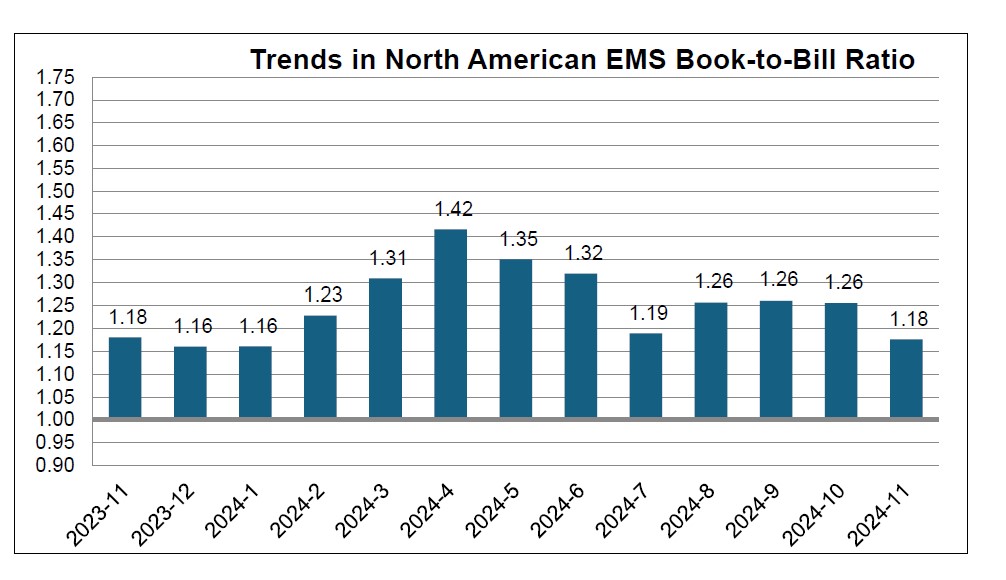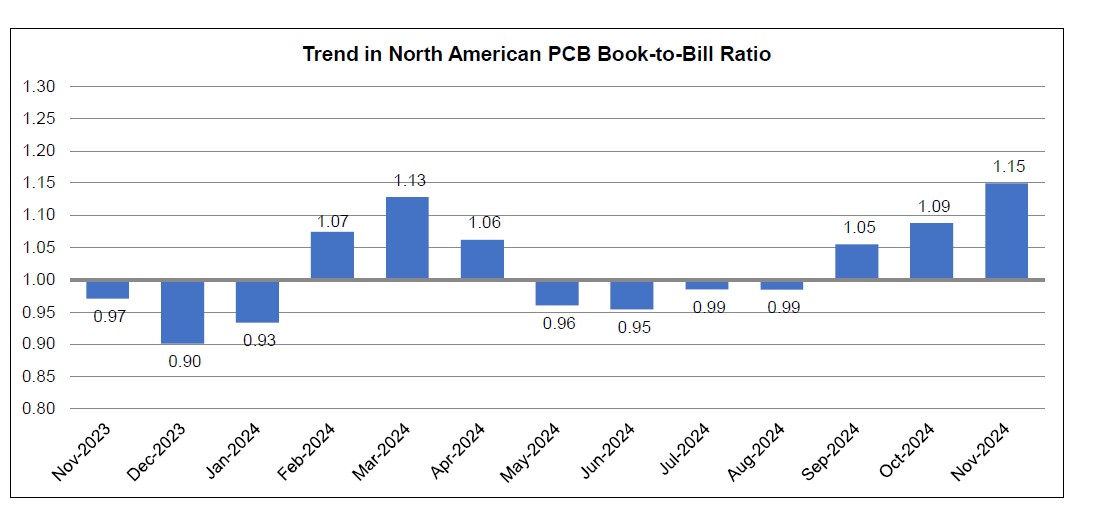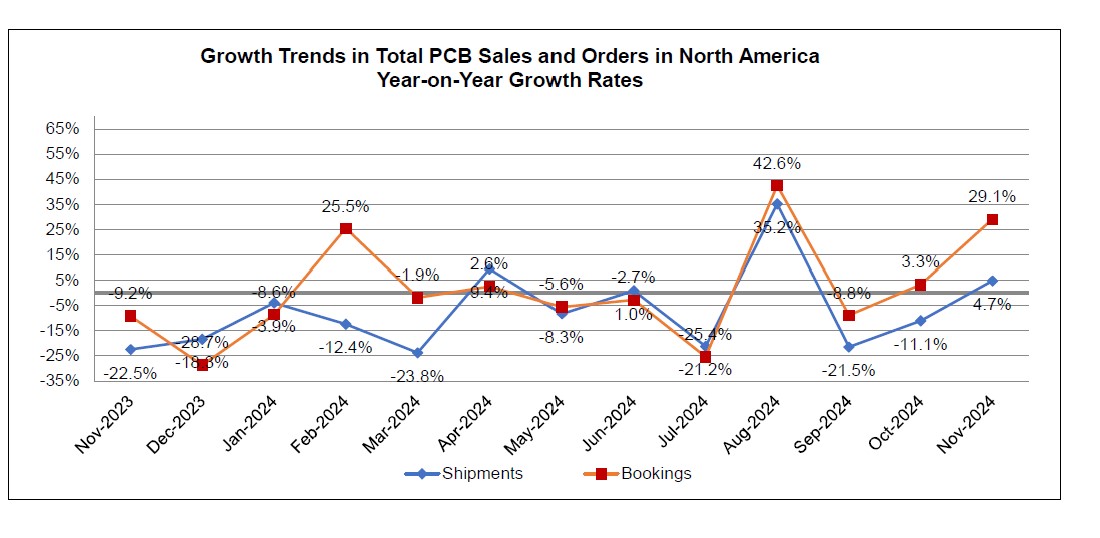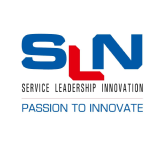Aimtron


Marcy LaRont, a printed circuit board (PCB) industry veteran who has been working as the managing editor for PCB007 magazine this past year, has been named executive director of the I-Connect007 group of publications, which was purchased by IPC in 2022. She succeeds Barry Matties, publisher and original founder of the I-Connect007 publications, who will continue on in an advisor capacity.
As executive director, LaRont will oversee the operations of all I-Connect007 publications and events.
LaRont began her career in PCB fabrication in the 1990s shortly upon graduating from college, learning the business organically from working in small and mid-sized manufacturing companies and plants. She previously worked for the I-Connect007 team as part of the sales group from 2007-2011.
LaRont describes coming back to the team and the industry as coming home. “I am thrilled to have the opportunity to lead this group and am excited about the future. As is true with the electronics manufacturing industry, media has also undergone continuous change over the past several years. Barry’s insight and vision have always allowed I-Connect007 to adapt and thrive with those changes. I look forward to continuing in that tradition as we examine all that our media and marketing outlets must be for our industry and our customers.”
Adds Brian Knier, IPC vice president of marketing and member success, “This is truly the end of an era. With the I-Connect007 group of publications, and CircuitTree magazine before that, Barry Matties succeeded in creating the go-to, best media source for news and information related to the electronics manufacturing supply chain worldwide. But with the end of every era, comes a new one. Marcy’s expertise in electronics manufacturing, communication, marketing and management enable her to be a strong voice for global electronics manufacturing. IPC is thrilled to welcome her to the role of executive director.”
LaRont can be reached at MarcyLaRont@ipc.org or Marcy@iconnect007.com.
IPC is pleased to announce the appointment of Ranee Ramya, Ph.D., as country manager for Malaysia. This strategic step reflects IPC’s commitment to fostering growth and innovation in one of Asia's most dynamic electronics and semiconductor hubs.

Dr. Ramya is based out of Penang and brings a wealth of experience in the electronics industry, with expertise in leadership, strategic planning, and fostering industry collaborations. She has been instrumental in driving workforce development initiatives and cultivating industry-academia partnerships. Dr. Ramya reports to Gaurab Majumdar, IPC India executive director.
IPC President and CEO John W. Mitchell, Ed.D., has been instrumental in highlighting the significance of IPC’s mission in the Malaysian market. “Malaysia’s electronics industry serves as a cornerstone of the global supply chain, and IPC’s initiatives are vital in driving manufacturing excellence,” said Dr. Mitchell. “The country’s vibrant electronics ecosystem and innovative spirit have rightfully earned it the reputation of being the 'Silicon Valley of Asia,' bolstering its competitiveness in advanced technologies.”
Malaysia stands as a prominent global player in producing electronic and semiconductor products. Domestic and international companies are accelerating the electronics and semiconductor industries.
IPC has three licensed partners in Malaysia providing training and certification to the existing electronics industry. Malaysian IPC certification growth is the highest in Southeast Asia. IPC has signed Memorandums of Understating (MoUs) with skill development organizations for growth of a skilled workforce in electronics manufacturing. Upskilling and reskilling the existing technical workforce with international level skills and competencies through industry-endorsed global standards will be the key deliverables of the initiative.
IPC organized the third edition of “Integrated Electronics Manufacturing & Interconnections” (IEMI) in Penang, Malaysia on July 24-25, 2024. Five hundred plus (500+) business delegates from Malaysia and Singapore, Japan, South Korea, Vietnam, Philippines, India, Egypt, Spain and South Africa participated at the global event.
In Malaysia, IPC will be focusing on workforce development programs with support from Malaysian government and industries; setting up an advanced packaging committee for standards development and organization of technical sessions and conferences.
Dr. Ramya can be reached at RaneeRamya@ipc.org. For more information on IPC’s services in Malaysia, visit www.ipc.org/india.
Date: February 19-20, 2025
February 19 | 2:00 pm – 8:00 pm
February 20 | optional policymaker visits
Location: IPC Washington, DC
1331 Pennsylvania Ave, NW
Washington, DC 20004
202-661-8096
Join fellow EMS leaders in the Nation’s Capital to discuss the most important public policy issues affecting the industry, pain points and solutions. This meeting will include presentations and discussions on the most pressing policy decisions of the federal government facing the EMS industry including: the economic and market outlook for 2025, international trade and tariffs, export controls, tax reform, sustainability, and workforce development.
Each topic will include short presentations from subject matter experts followed by a roundtable discussion led by participants to share concerns, raise issues, and provide feedback and direction to IPC advocacy on how they can best represent your interest.
IPC will also schedule optional meetings with policy makers on Thursday, February 20th, for those interested in building relationships and making their voice heard with Members of Congress and the Trump Administration. IPC will provide briefing materials and support for all meetings.
Complimentary Registration Includes
Hotels within walking distance
Have questions? Email Mark Wolfe at MarkWolfe@ipc.org.
1331 Pennsylvania Ave, NW
Washington, DC 20004
United States
IPC Washington, DC
1331 Pennsylvania Ave, NW
Washington, DC 20004
United States
The electronics industry faced a dip in sentiment this December, as the Demand Index declined 1.8 percent according to IPC’s December Sentiment of the Global Electronics Manufacturing Supply Chain Report. It remained below 100 for the fourth consecutive month, signaling continued contraction.
Cost pressures continue to challenge operations. The Labor Costs Index climbed two percentage points from its all-time low, while the Material Costs Index dropped four percentage points. The majority of firms continue to report ongoing increases in both labor and material costs, straining operations.
In response to special questions regarding the electronics industry’s concern with proposed tariffs, trade concerns loom large for 2025. A majority (68 percent) of electronics manufacturers and suppliers express at least a moderate concern about the impact of potential tariffs on the electronics industry. A significant portion (38 percent) plan to pass the full cost increase of any tariffs on to their customers. Another 19 percent intend to share the burden, passing along past of the expense while absorbing some internally. Only a small majority (4 percent) expect to absorb the entire cost without raising prices. “These strategies suggest that most firms view transferring at least a portion of tariff-related costs to end-users as unavoidable,” said Shawn DuBravac, Ph.D., IPC chief economist and report author.
Additional survey data show:
These results are based upon the findings of IPC’s Current State of Electronics Manufacturing Survey, fielded between November 15 and November 30, 2024.
Read the full report.
IPC announced today the November 2024 findings from its North American Electronics Manufacturing Services (EMS) Statistical Program. The book-to-bill ratio stands at 1.18.
Total North American EMS shipments in November 2024 were up 10.6 percent compared to the same month last year. Compared to the preceding month, November shipments were up 4.0 percent.
EMS bookings in November increased 8.1 percent year-over-year and decreased 2.7 percent from the previous month.
“EMS order volumes have slowed in recent months, but the year-to-date trend remains steady. This slowdown could signal a short-term pause as businesses wait for better clarity following the inauguration,” said Shawn DuBravac, IPC’s chief economist.

Detailed Data Available
Companies that participate in IPC’s North American EMS Statistical Program have access to detailed findings on EMS sales growth by type of production and company size tier, order growth and backlogs by company size tier, vertical market growth, the EMS book-to-bill ratio, 3-month and 12-month sales outlooks, and other timely data.
Interpreting the Data
The book-to-bill ratios are calculated by dividing the value of orders booked over the past three months by the value of sales billed during the same period from companies in IPC’s survey sample. A ratio of more than 1.00 suggests that current demand is ahead of supply, which is a positive indicator for sales growth over the next three to twelve months. A ratio of less than 1.00 indicates the reverse.
Year-on-year and year-to-date growth rates provide the most meaningful view of industry growth. Month-to-month comparisons should be made with caution as they reflect seasonal effects and short-term volatility. Because bookings tend to be more volatile than shipments, changes in the book-to-bill ratios from month to month might not be significant unless a trend of more than three consecutive months is apparent. It is also important to consider changes in both bookings and shipments to understand what is driving changes in the book-to-bill ratio.
IPC's monthly EMS industry statistics are based on data provided by a representative sample of assembly equipment manufacturers selling in the USA and Canada. IPC publishes the EMS book-to-bill ratio by the end of each month.
IPC announced today the November 2024 findings from its North American Printed Circuit Board (PCB) Statistical Program. The book-to-bill ratio stands at 1.15.
Total North American PCB shipments in November 2024 were up 4.7 percent compared to the same month last year. Compared to the preceding month, November shipments were down 1.4 percent.
PCB bookings in November were up 29.1 percent compared to the same month last year. November bookings were down 13.7 percent compared to the preceding month.
“A jump in November orders pushed the PCB book-to-bill to the highest level in over two years. All eyes are now on whether this momentum carries forward into the new year,” said Shawn DuBravac, IPC’s chief economist.


Detailed Data Available
Companies that participate in IPC’s North American PCB Statistical Program have access to detailed findings on rigid PCB and flexible circuit sales and orders, including separate rigid and flex book-to-bill ratios, growth trends by product types and company size tiers, demand for prototypes, sales growth to military and medical markets, and other timely data.
Interpreting the Data
The book-to-bill ratios are calculated by dividing the value of orders booked over the past three months by the value of sales billed during the same period from companies in IPC’s survey sample. A ratio of more than 1.00 suggests that current demand is ahead of supply, which is a positive indicator for sales growth over the next three to twelve months. A ratio of less than 1.00 indicates the reverse.
Year-on-year and year-to-date growth rates provide the most meaningful view of industry growth. Month-to-month comparisons should be made with caution as they reflect seasonal effects and short-term volatility. Because bookings tend to be more volatile than shipments, changes in the book-to-bill ratios from month to month might not be significant unless a trend of more than three consecutive months is apparent. It is also important to consider changes in both bookings and shipments to understand what is driving changes in the book-to-bill ratio.
IPC's monthly PCB industry statistics are based on data provided by a representative sample of both rigid PCB and flexible circuit manufacturers selling in the USA and Canda. IPC publishes the PCB book-to-bill ratio by the end of each month.

By Rich Cappetto, Senior Director, IPC North American Government Relations
The most popular and enduring metaphor for the public policy process is sausage-making because it is a messy process with sometimes mysterious and unappealing ingredients. Throughout the year, the IPC Government Relations team keeps an eye on the sausage-making so you don’t have to, although we do need your help in the kitchen. Fortunately, over the last year, we’ve seen evidence that our collaborative efforts are working, setting the table for more progress going forward.
A series of major actions in the United States in 2024 signaled a trend toward greater support of the domestic electronics industry – building on the remarkably successful year we had in 2023.
As the Chips and Science Act of 2022 was implemented, IPC urged the U.S. Government to move from a “chips only” approach to a “silicon-to-systems” strategy. As a testament to our growing reputation and influence, IPC’s expertise was increasingly sought out by policymakers as they strategized how to secure supply chains for national defense and critical infrastructure. IPC brought the industry’s voice to the highest levels of the U.S. government on Capitol Hill, at the White House, and across the executive branch at agencies including the departments of Commerce, Labor, and Defense.
Here are a few of our most notable successes of 2024.
Advanced Packaging: The National Advanced Packaging Manufacturing Program (NAPMP) cited IPC’s 2021 report on advanced packaging in the agency’s published strategy to build a domestic advanced packaging ecosystem.
Defense Industrial Base: The Senate Armed Services Committee included IPC-recommended language in its report on the National Defense Authorization Act, directing the Department of Defense to brief Congress as to how it proposes to close industrial base gaps in electronics manufacturing.
Defense PCBs: The Senate Appropriations Committee included IPC’s recommended language in its report on the FY25 defense spending bill, allocating $45 million in the Defense Production Act account specifically for printed circuit board manufacturing. The report also encouraged ongoing prioritization of PCB manufacturing and future-year funding.
Grasstops Advocacy: Six IPC members met with more than 14 congressional offices during Impact Day 2024, including influential Members of the appropriations, commerce, armed services, and tax committees and congressional leadership to advocate for the domestic electronics industry.
Workforce and CHIPS: IPC CEO John W. Mitchell was invited to represent the electronics industry at a White House roundtable discussion on workforce development and the CHIPS Act with the Director of the National Science Foundation and others.
Apprenticeship: IPC submitted formal comments to the U.S. Department of Labor, opposing a 700-page regulation that would have added enormous administrative burdens on employers seeking to make use of apprenticeships to build their workforce. The proposed regulation was later withdrawn.
AI Data Centers: IPC participated in a research project with the U.S. Department of Commerce to identify risks in the supply chain for AI Data Centers. IPC’s report was referenced in the department’s subsequent findings, which recommended federal support to stimulate the domestic PCB and PCB assembly sectors.
Government Grants: IPC built the association’s first-ever integrated grants program and applied for nearly $70 million in government funding opportunities to drive workforce growth, secure critical supply chains, and advance domestic manufacturing capabilities. IPC’s grants effort builds on its advocacy by ensuring the organization is positioned to capture the strategic investments that will flow from our policy wins.
What were the year’s most meaningful U.S. government policy wins to you?
Rest assured we will continue building on these efforts and relationships in 2025 and beyond, as we do expect a continued focus on building domestic manufacturing and shoring up critical supply chains.
By Alison James, Senior Director, IPC European Government Relations
As we approach the end of the year, I want to take a moment to share some of the successes we achieved in European advocacy for electronics manufacturing this year. Thanks to tremendous collaboration, IPC and our partners navigated an extraordinary year marked by significant global changes, including a new European Commission and European Parliament, new National Governments in place and in transition, a pending new U.S. administration, and geopolitical and economic upheaval worldwide.
The industry came together with a stronger, more unified voice for the electronics manufacturing sector, and we have been heard in Brussels and capitals across Europe. Here’s a quick recap of some of the highlights from this year in Europe:
Growing our European voice online: With our new European LinkedIn and government pages, we’ve reached thousands of influential people in EU circles with compelling content and updates. We also produced two EU-focused videos that tell the stories of advanced packaging and silicon-to-systems. IPC President and CEO John W. Mitchell and I recently sat down to discuss how geopolitics and competitiveness are shaping the new EU term; this conversation is posted on our European government webpage. We continue to see steady growth and engagement with our online content.
As much as we’ve accomplished, the work ahead is equally important. The new year will bring fresh challenges and opportunities, and together, we must ensure our industry’s voice remains loud and clear in Europe and beyond. We look forward to carrying on our momentum and making 2025 a successful year for Europe’s electronics manufacturers.